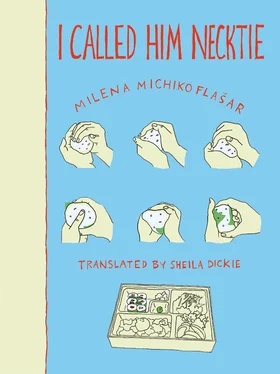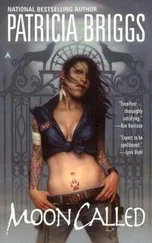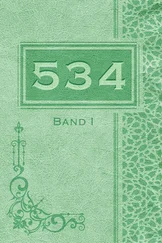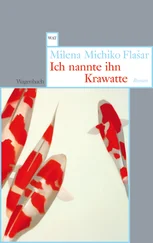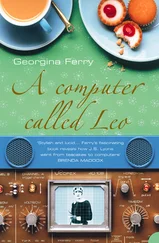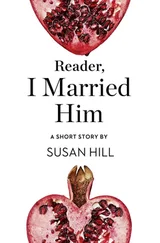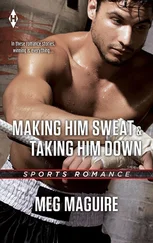86
Kyōko on the other hand!
She got up out of bed. I watched her as she rose, growing more beautiful by the day. That special glow in a mother’s eyes as she bends over her child’s bed, entranced by his every movement, even when it’s so small as to be hardly noticeable. Just look, he can grasp hold of things already, she’d say. Just look, he’s smiling. Just look, he has your eyes. Don’t you think? Papa’s eyes, she said to him, since I didn’t answer. You have Papa’s eyes. From the hallway I felt envy. I envied her the ability, against all reason, so I thought, against all normal human comprehension, to regard it as ours, to accept it as it was, without mentioning its deficiency, this silent, silent child. Moreover: Not to be aware of any deficiency in him. But she must see that it’s a mistake. Surely, I thought, she’s just pretending. Yes, surely she’s putting on an act. I told my colleagues in the firm our son had arrived in the world hale and hearty. Ten fingers, ten toes. They congratulated me, applause broke out. I remember the sound of hands that didn’t want to stop clapping. And I remember that for thirty seconds time I experienced something like joy.
Our parents came to visit. Kyōko’s. Mine. A dutiful glance into the baby’s room, afterwards, over tea and cookies, we spoke of rising prices, the typhoon in the south and an actor’s affair with a singer. It was a strained conversation, kept faltering, maintained only to prevent it from turning to Tsuyoshi if at all possible. I went into the garden to smoke a cigarette. Oppressive humidity, a thunderstorm was coming. My mother followed me out. I heard her behind me sniffling into a handkerchief. Poor son, she said. She meant me. It’s impossible to know how such things happen. The Matsumotos. Perhaps. Okada-san kept something from us. We should have done more thorough research. It’s not from our side, she whispered. I let it go. Heard comfort in her whisper: It is Kyōko. Definitely. So ill-mannered, she was then, one should have seen it in her bad manners. Enough of that. Not loudly, I said it quietly: That’s enough.
87
Could you hold him? Kyōko pushed him into my arms. I have to check on the water. She was already in the kitchen. I was alone with Tsuyoshi for the first and last time. His weight surprised me. As did the warmth of his body. In my imagination he was light and cool, like something you cannot grasp: A gentle breeze. Hardly there, already gone. He stared at me, his fists stretching up. I held his head. Silky hair. Flat little nose. Open mouth. You. Just cry. A little. Can’t you cry for me? Babies do that. They cry all day. It’s enough to drive you mad, their crying. But you. Why don’t you cry? I pinched his cheeks. First hard, then harder, until my fingers hurt. His cry was a wheeze, shocked, I put him down. No babies cry like that, only old people. I need some air. When Kyōko came back I was already outside under the maple tree, lighting a cigarette. Today I think: If I had stayed, just a moment, waited for his smile. I would have discovered that his handicap was a minor one compared to mine. My hardness prevented me from feeling the softness of his cheeks deeply and sincerely. Of the two of us I had the serious heart defect.
Kyōko didn’t reproach me. She knew my unspoken feelings and feared I would express them. All the people who came to convey their best wishes. She called them jokingly, agonizingly, condolence visits. They came to express their regret. How sad that he is not healthy. And what a misfortune. Could it have been prevented? Kyōko was afraid of hearing the same helpless regret from me. As if he were dead. She snorted in disgust. She raged against the world instead of me.
88
Once, Kyōko’s idea, we were guests at the Sun House. It was a house where parents of children like Tsuyoshi met to share their experiences. To belong. Suddenly that was a suffocating thought. To be part of a group. I arranged a proper smile, put it on, and wore it, as a sign that said: Please don’t touch. I barricaded myself behind it. In the round of introductions I said with a smile: I’m pleased to be here. Five children, I counted. Nine fathers and mothers. One was missing. Me. Yet I was welcomed in: The pleasure is all ours.
Tsuyoshi was the youngest. Five months old. The other children were three, six, ten, one was sixteen. I was amazed. The sixteen-year-old, I think he was called Yōji, was busy painting a picture. He sat bobbing up and down with excitement, a red crayon in his hand, squinted covertly over at us, then bent over his sheet of paper again. Meanwhile the ten-year-old Miki eagerly declared that she wanted to build houses when she grew up. Her father caught her proudly by the shoulders: So, an architect. My daughter will be an architect. What a madman, I thought. My smile was still fixed. The three-year-old crawled between my legs. Tachan, come here! His mother enticed him with a plastic duck. They talked over each other and stumbled over scattered toys. A doll with twisted limbs lay on an eyeless teddy bear. The six-year-old struck at it wildly.
Uncle.
I jumped. A red hand, red as fire, nudged me.
It was Yōji. He had difficulty speaking. He forced out each word as if he’d just learned it: I have painted a picture. Here. Please. It’s you. He held the sheet of paper under my nose.
I saw a face. Angular. The mouth was a line, the ends turned down. The eyes two holes, with two bolts of lightning coming out of them. No ears, but horns. The face of a demon. Yōji’s father apologized: It’s not a very good likeness. And to him: You can do better than that. You see, Uncle is smiling. Yōji sighed and went back to his place.
89
He was sighing as well. To think that this boy had seen into my soul. And he was not the only one. He wiped the sweat off his brow with his sleeve. This heat. The grass is drying out. Of all the seasons I like summer the least. A little silent cough. We were in the park. I noticed that he hadn’t put his briefcase down between us as usual. I noticed, it didn’t worry me. Our bench was a waiting bench. Together we were waiting for something that would not happen.
Tsuyoshi!
A cry.
It echoes between the walls of our silent house.
I rush into the baby’s room. Kyōko is there. Crying. Over his bed. Lifting him up. His head falls heavily to one side. He’s not breathing. He’s cold. Come quickly. Hurry up. To the hospital. A slightly sour smell. I think of the teacher. Start the engine. The car, a moving cry. In the mirror I see Kyōko’s face distorted by crying. Tsuyoshi is lower down on her lap. I can’t see him. Tetsu, please. Drive faster. For heaven’s sake. Drive as fast as you can. And that moment, abrupt, when she stopped crying. Instead she whispered: He’s not breathing. He’s dead. Blue traffic light on Kyōko’s face. Drive slowly. Slower. You should drive slowly. I want to keep him with me as long as possible. I take my foot off the pedal. Brake. I feel this awkwardness, I admit it, a hot wave. Who has died? I don’t know him. Behind us there is honking. Someone shouts an insult. A feeling, no feeling: He doesn’t. It’s not me they are talking about when they when they say: We are sorry, there’s nothing to be done.
90
It’s pointless, I know. But I wish, I really wish I could say that I recognized right away what a loss I’d suffered that day. I recognized the loss of my son. I recognized the loss that meant I had never called him by his name, the name I’d given him. Tsuyoshi. The strong one. That’s how I had imagined him. Strong as a fist punching me in the belly, like in the movies I never watched with him. Yet the recognition of who and what I lost only came later, years later, and when it came, it was a double loss. The forcing open of a scar. And you reach in and understand, it cannot be corrected. It’s not something that can be corrected.
Читать дальше
